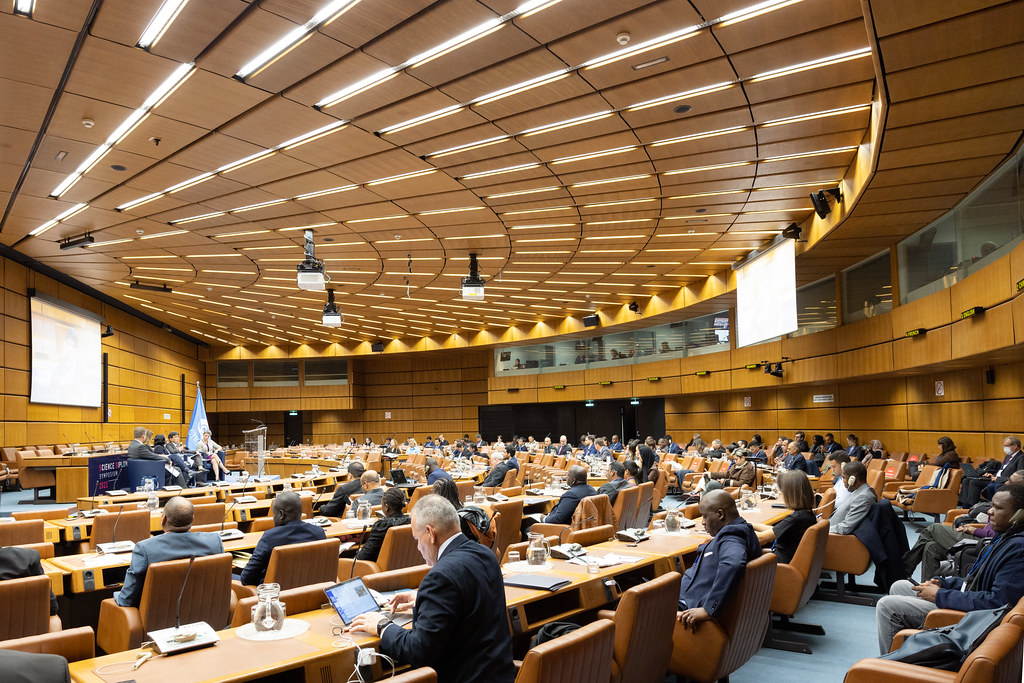Diplomacy is a delicate art, mastered by skilled negotiators who understand the importance of maintaining relationships, achieving common goals, and shaping international relations.
The world we live in today is interconnected, and navigating its complexities requires finesse, tact, and strategic thinking. Skilled negotiation is the cornerstone of successful diplomacy, allowing countries to manage conflicts, find compromises, and foster cooperation.
At its core, diplomacy is about building bridges between nations, transcending cultural barriers, and finding common ground.
Whether it is through multilateral organizations like the United Nations or bilateral talks, negotiation is the key tool that diplomats use to craft agreements and resolve disputes peacefully. Through the art of negotiation, diplomats harness their persuasive abilities, empathy, and understanding of international dynamics to navigate challenging situations.
Skilled negotiators possess a range of qualities that enable them to excel in the art of diplomacy.
First and foremost, they have a deep understanding of their own country’s interests and goals. This knowledge allows them to strategize effectively, identify potential areas of compromise, and set clear objectives for negotiations. Skilled negotiators have a vision for what can be achieved and work tirelessly to bring it to fruition.
Moreover, effective diplomacy requires active listening, open-mindedness, and a genuine willingness to understand the concerns and interests of the other party. Skilled negotiators use empathy to put themselves in their counterparts’ shoes, which allows them to find mutually beneficial solutions. They recognize that diplomacy is not a zero-sum game but rather an opportunity to forge relationships and create win-win situations.
The art of diplomacy is constantly evolving, adapting to the ever-changing landscape of international relations.
This is particularly evident in the realm of economic diplomacy, where negotiation plays a crucial role in shaping trade agreements, investment policies, and economic cooperation. Skilled negotiators understand the economic intricacies of globalization and leverage them to secure favorable deals for their countries.
Moreover, negotiation skills are not limited to formal diplomatic channels.
In the digital age, diplomacy takes place not only in government offices but also through social media platforms, public speeches, and informal interactions. Skilled negotiators utilize these platforms effectively, understanding the power of public opinion in shaping international relations. They communicate clearly, concisely, and thoughtfully, recognizing that every word spoken or written can have significant consequences.
The impact of skilled negotiation on international relations cannot be understated.
It has the potential to prevent conflicts, foster peace, and build alliances. For example, the Camp David Accords in 1978, which led to a peace treaty between Egypt and Israel, were the result of skilled negotiation and diplomacy. In recent years, negotiations surrounding the Iran Nuclear Deal and the Paris Agreement on climate change have demonstrated the power of skilled negotiators in shaping global policies.
However, while skilled negotiation is often successful, it is not foolproof.
Diplomacy can be challenging, with high-stakes and complex issues that require patience, compromise, and a commitment to long-term relationships. Negotiators must navigate political pressure, domestic concerns, and historical tensions to reach mutually beneficial agreements.
In conclusion, the art of diplomacy is shaped by skilled negotiators who understand the importance of building relationships and finding common ground. Through careful negotiation, these diplomats navigate complex international relations, forging agreements, and resolving disputes peacefully. Skilled negotiators possess a range of qualities, from strategic thinking to empathy, which allow them to excel in their craft. The impact of their work can be seen in the prevention of conflicts, the fostering of peace, and the shaping of global policies. However, diplomacy is not without its challenges, and success requires patience, compromise, and a commitment to the long-term goals of international relations.

